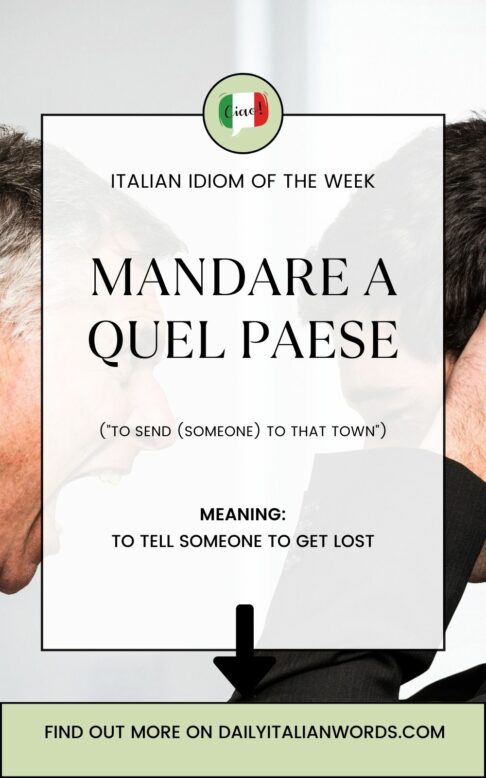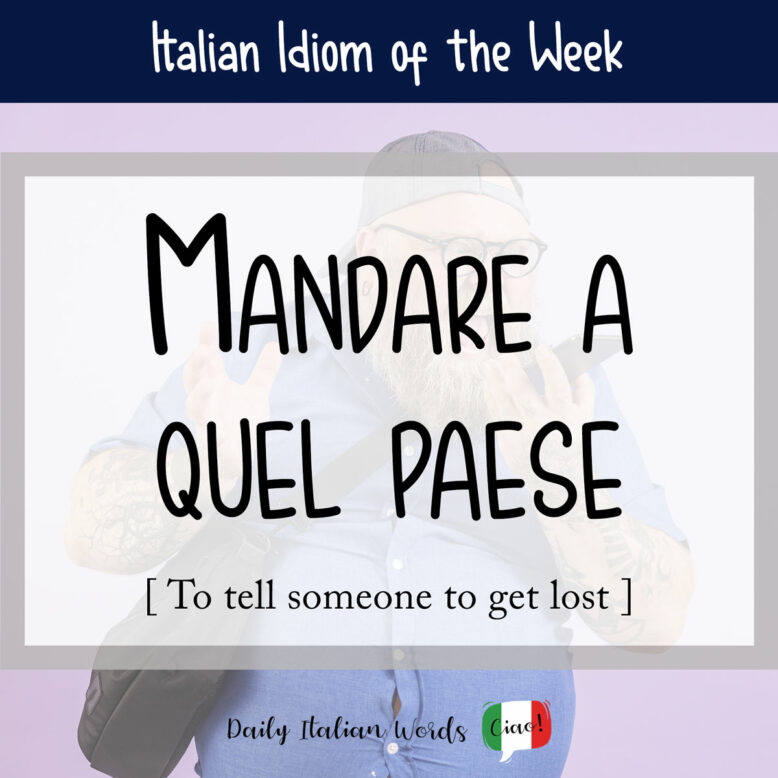If someone is truly getting on your nerves, you might feel tempted to tell them to get lost… or worse. In Italian, the act of telling someone to buzz off can be perfectly expressed with the idiom mandare a quel paese (literally “to send to that country / land / town”).

Unlike some other coarser expressions, mandare a quel paese is a strong yet relatively inoffensive idiom in Italian, similar in tone to “buzz off” “get lost” and “beat it”. Indeed, it is often used in a playful, joking or light-hearted manner.
Ho mandato a quel paese il mio capo.
I told my boss to get lost.
According to the Corriere dictionary, quel paese is a euphemism for the afterlife, used to soften the strength of the expression. It exemplifies the human tendency to avoid explicitly uttering words with strongly negative meanings, such as death, cancer, and the like.
Note: Somewhat confusingly for learners, paese can mean town or country depending on the context. You can find out more about the word paese in our complete article.
If you want to directly tell someone to get lost in person, you can use the phrase andare a quel paese (literally “to go to that town”), making sure to properly conjugate the verb andare (to go) according to the person being addressed. Vai is the most frequently used, as it’s the second-person informal, followed by andate, the plural form “you guys.” The formal version is vada, but it’s unlikely you’ll ever have to use it.
Arrivi sempre in ritardo! – Ma vai a quel paese!
You’re always late! – Oh, buzz off!

And just in case you were wondering what the cruder equivalents are of this expression, here are three of the most common. It’s best if you don’t use them in front of your nonna though!
- Mandare al diavolo = literally “to send to the devil”
- Mandare all’inferno = literally “to send someone to hell”
- Mandare a f*nc*lo = to tell someone to f*** off

Heather Broster is a graduate with honours in linguistics from the University of Western Ontario. She is an aspiring polyglot, proficient in English and Italian, as well as Japanese, Welsh, and French to varying degrees of fluency. Originally from Toronto, Heather has resided in various countries, notably Italy for a period of six years. Her primary focus lies in the fields of language acquisition, education, and bilingual instruction.


